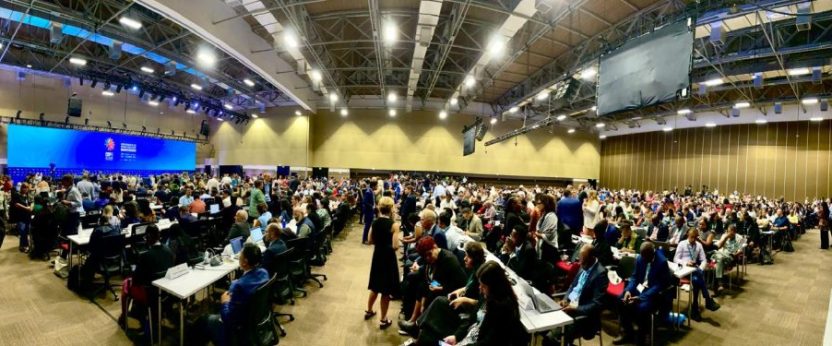Shaping the 1st Global Review of Progress on UN’s Historic 2022 Biodiversity Framework
The Parties to the Convention on Biological Diversity (CBD) will convene for two weeks in Panama City for key subsidiary body meetings on the road to COP17, the 2026 UN Biodiversity Conference.
This is a significant meeting given that only one year is left before the first global review of Kunming- Montreal Global Diversity Framework (KMGBF’s).
Two important meetings will be held in Panama City , 20-30 October 2025.
The 2026 stocktaking will mark the KMGBF’s halfway point: four years into the KMGBF adopted in Montreal in 2022, with four years left to meet its targets.

CBD’s Subsidiary Body on Scientific, Technical and Technological Advice (SBSTTA-27) 27, 20–24 October 2025
In addition to reviewing the global review outline, the agenda includes:
- Turning major new assessments by IPBES, the Intergovernmental Platform on Biodiversity and Ecosystem Services into actionable advice: the Nexus Assessment examining the interlinkages of biodiversity, water, food, and health in the context of climate change, and the Transformative Change Assessment examining the underlying causes of biodiversity loss and showing that transformative change to achieve the KMGBF vision of living in harmony with nature is both urgent and possible;
- Advancing coherent approaches to addressing biodiversity and climate change interlinkages, which will also be a major focus of COP30 of the UN Framework Convention on Climate Change (Brazil, 10-21 November);
- Risk assessment of living modified organisms; mitigating the spread and impacts of invasive alien species (Target 6); biodiversity and agriculture (soil biodiversity, cooperation on pollinators); biodiversity and health interlinkages.
CBD’s Subsidiary Body on Article 8(j) and Related Provisions (SB8J-1) 27–30 October 2025
This will be the first meeting of the new Subsidiary Body on Article 8(j) and Other Provisions of the Convention on Biological Diversity Related to Indigenous Peoples and Local Communities.
SB8J-1 is historic: no UN environmental treaty has ever created a permanent body dedicated to indigenous peoples and local communities.
Why it matters: indigenous peoples and local communities are stewards of much of the Earth’s biodiversity. Their leadership, full participation in discussions, and recognition of their rights are essential to achieving the KMGBF. SB8J-1 marks a turning point in terms of elevating their voices in recognition of their role and contributions and institutionalizing decades of advocacy into global biodiversity governance.
An advanced media briefing by CBD Executive Secretary Astrid Schomaker and key CBD officials is scheduled on September 29.
Accreditation is open for media who intend to cover the proceedings of the CBD.
(Source: Convention on Biological Diversity: Media)
